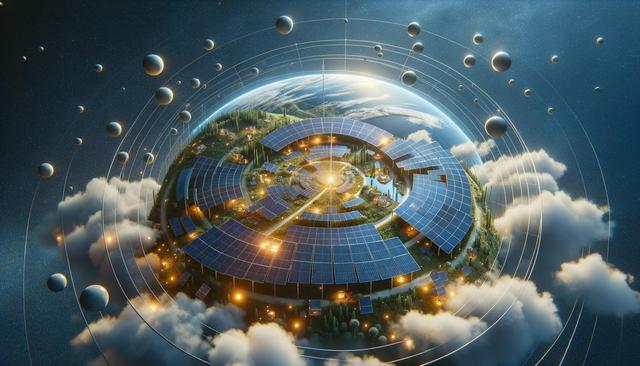The Rising Popularity of Solar Power Among Homeowners
Over the past decade, solar power energy has gained remarkable traction among homeowners seeking more sustainable and cost-effective ways to power their homes. A significant driver behind this shift is the growing awareness of environmental concerns and the increasing affordability of solar power systems. More homeowners are evaluating whether sun energy can meet their daily electricity needs and reduce their dependence on traditional energy grids.
Solar panels have become more accessible, both in terms of cost and installation options. The technology behind solar PV has also improved, making it more efficient and reliable than in the past. This combination of innovation and affordability has encouraged many to consider solar as a viable energy solution. Homeowners are now discovering that the upfront costs of installing solar panels are often offset by long-term savings on electricity bills, not to mention the potential increase in property value.
Understanding How Solar Power Systems Work
To decide if solar is worth it, it’s essential to understand how solar power systems operate. Solar PV, or photovoltaic systems, convert sunlight directly into electricity using semiconductor materials. These systems typically consist of several core components:
- Solar panels that capture sunlight and convert it into direct current (DC) electricity
- An inverter that transforms DC electricity into alternating current (AC) for home use
- Mounting equipment to secure panels on rooftops or ground mounts
- Optional battery storage systems to store excess energy for later use
When sun energy hits the solar panels, the photovoltaic cells generate electricity that can either be used immediately or stored for future use. Some systems also allow homeowners to feed excess electricity back into the grid, potentially earning credits or reductions on utility bills. This process, known as net metering, adds another layer of financial feasibility to solar adoption.
Financial Considerations and Incentives
One of the most common questions homeowners ask is whether solar is a sound financial investment. The answer often depends on several factors, including location, electricity usage, local incentives, and the cost of installation. However, many find that solar power systems can provide significant savings over time. Here’s how:
- Reduction or elimination of monthly electricity bills
- State and federal tax credits and rebates
- Potential to sell excess energy to the grid
- Increased home value due to energy-efficient upgrades
In addition to these savings, some areas offer financing options like solar leases or power purchase agreements (PPAs), which allow homeowners to access solar energy without a large upfront investment. These financial incentives make solar panels more attainable, further driving their popularity.
Environmental and Lifestyle Benefits
Beyond the financial aspect, solar power energy offers compelling environmental advantages. By reducing reliance on fossil fuels, homeowners contribute to lower greenhouse gas emissions and help combat climate change. Solar energy is clean, renewable, and abundant, making it a sustainable solution for long-term energy needs.
Adopting solar PV also supports a more resilient energy infrastructure. In regions prone to power outages or natural disasters, solar power systems with battery storage can provide a reliable backup source of electricity. Additionally, making the switch to solar aligns with a growing lifestyle trend focused on sustainability and self-sufficiency.
Many homeowners appreciate the autonomy that comes with generating their own power. Whether it’s reducing their carbon footprint or preparing for future energy uncertainties, solar panels empower individuals to take control of their energy consumption in a meaningful way.
Is Solar Right for Your Home?
While solar power systems offer numerous benefits, they may not be a perfect fit for every household. Factors such as roof orientation, shading, climate, and local electricity rates all influence how effective a solar installation will be. A thorough site assessment by a qualified installer can determine the suitability of a property for solar PV.
It’s also important to consider long-term maintenance and system warranties. Fortunately, most modern solar panels require minimal upkeep and come with warranties that can span 20–25 years. These features provide peace of mind and ensure that your investment continues to deliver value over time.
Before making the switch, homeowners should evaluate their energy goals, budget, and available incentives. Consulting with a professional can help navigate these decisions and provide a customized recommendation based on specific needs and conditions.
Conclusion: Why More Homeowners Are Embracing Solar
For many homeowners, the decision to invest in solar panels is driven by a mix of economic, environmental, and personal values. As technology continues to advance and support systems grow, solar power energy is becoming an increasingly accessible and practical choice. Whether aiming to cut electricity costs, reduce environmental impact, or gain energy independence, solar power systems offer a reliable path toward these goals.
By harnessing sun energy through efficient solar PV setups, homeowners are not only making a smart financial decision but also contributing to a cleaner and more sustainable future. While each home’s situation is unique, the growing trend toward solar adoption suggests that, for many, the switch is indeed worth it.




Leave a Reply